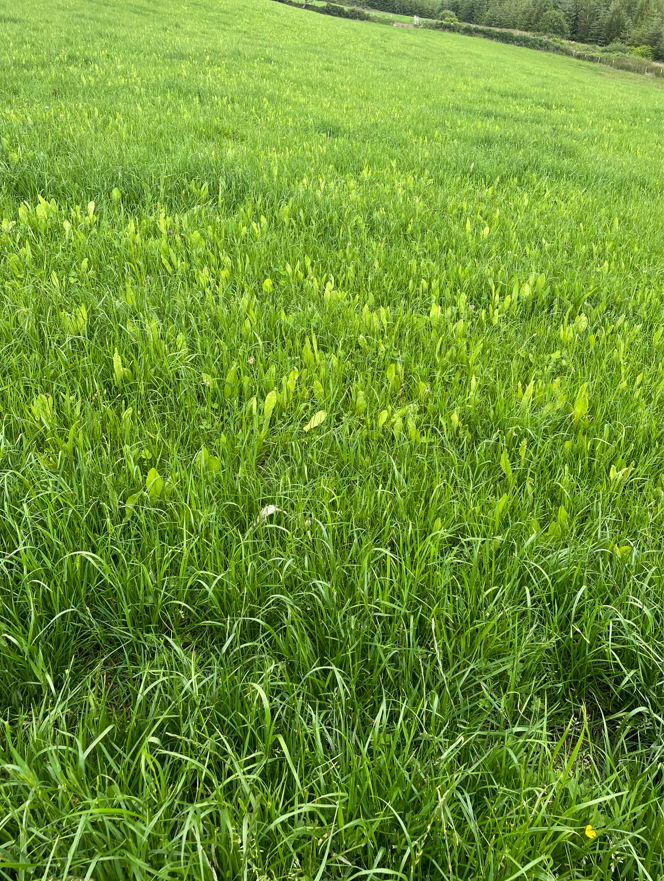Innovative agroforestry, diverse swards and biodiversity-friendly farming were just some of the features that Minister for Agriculture, Food and the Marine, Charlie McConalogue witnessed on a recent visit to the Inishowen Uplands European Innovation Partnership (EIP) demonstration farm.
The minister visited the farm of James Breslin, Tullynavin, Redcastle, in Co. Donegal, which is the demonstration farm for the measures involved in the Inishowen Uplands EIP.
Inishowen Uplands – agroforestry
There, he met with James and James Jr. and members of the operational group managing the EIP project, along with project manager, Henry O’ Donnell who commented:
“The minister saw the innovative agroforestry established in various sections of the farm, which provides shelter for animals, captures nutrients from the soil and improves water quality on the farm.
“He examined the various methods used to establish the trees in different areas, from exposed areas at the top of the farm to the riparian zone along the river.”
Upland cattle measure
Henry explained how the upland cattle measure provided the farmer with, what was previously an unused grazing platform, an upland area where cattle can now graze from late spring to late autumn.

“This is a cost-free grazing system and weight recording from last year has shown that the animals perform very well over the grazing season,” explained Henry.
“They also manage the uplands as non-selective grazers removing dead vegetation and Molinia grasses which are unpalatable for sheep, and are a fire hazard.
“The cattle improve the uplands for grazing with sheep,” Henry added.
Diverse swards
The diverse swards established on the farm were also discussed and examined as the farm’s “lush pasture” is ready for its fourth grazing with sheep this year, and the herbs, clovers and grasses were clearly visible, said Henry.
“The sward has not received any nitrogen fertiliser this year. The benefits of this low-input, low-cost grazing system were discussed as well as the benefits for the environment.

“The inclusion of diverse swards as an option in the new Results-Based Environment Agri Pilot Programme (REAP) scheme was also discussed.”
The benefits for biodiversity and flood mitigation that the establishment of ponds can bring, as well as the potential for a farm water supply, were also highlighted.

James explained to Minister McConalogue how the red clover sward is just cut for silage to provide a high-protein winter fodder for his young animals.
The sward can be cut up to three times each year and the growth is driven with the nitrogen produced by the red clover.
The cost savings of not using nitrogen fertiliser and the benefits to the environment were obvious to the minister.

Commenting on his visit, Minister McConalogue said:
“The project is a tremendous example of what can be done in relation to making the environment work with agricultural production.”
